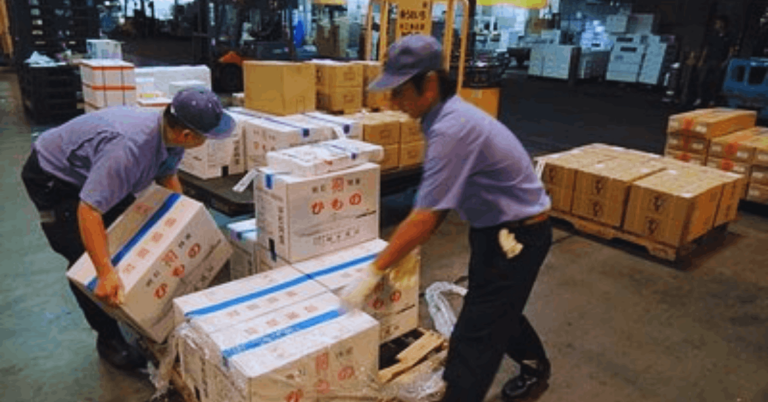Factory jobs in Japan play a critical role in shaping the nation’s future. This article explores the benefits and opportunities these jobs offer workers and the economy.
Understanding the significance of these positions will highlight their importance in building a stronger, sustainable future.

Types of Factory Jobs in Japan
Factory work in Japan offers a wide range of positions that cater to different skill levels. These roles can be categorized into manufacturing, skilled, and entry-level positions.
Manufacturing Roles
These positions focus on producing goods and operating machinery. Here are three examples:
- Assembly Line Worker: Responsible for assembling products in a production line.
- Machine Operator: Operates and maintains machinery used in manufacturing.
- Quality Control Inspector: Checks products for defects and ensures they meet standards.
Skilled Positions
Skilled positions require specialized knowledge or technical skills. Here are three examples:
- Technician: Installs, maintains, and repairs machines used in production.
- Engineer: Designs and optimizes production processes or machinery.
- Supervisor: Manages production teams and ensures efficient operations.
Entry-Level Positions
These roles are great starting points for people new to factory work. Here are three examples:
- Packing Worker: Packs finished products for shipping.
- Material Handler: Moves raw materials and products throughout the factory.
- Maintenance Assistant: Helps with basic repairs and keeps equipment running smoothly.
Salary and Compensation
Workers in Japanese factories receive competitive wages and additional perks. Salaries often depend on experience, location, and specific job roles.
Average Salary for Factory Workers in Japan
The typical salary range is ¥2.5M to ¥4.5M per year, depending on skills and responsibilities. Entry-level roles generally start at the lower end of this scale. Senior positions or specialized jobs tend to pay at the higher end.
Overtime and Bonuses
Many workers earn additional income through overtime pay, higher than standard hourly rates. Bonuses are typical and are often given twice a year. These extras can significantly boost annual earnings.
Salary Variations by Region
Salaries in urban areas like Tokyo are typically higher due to the cost of living. In rural regions, wages might be lower but come with reduced living expenses.
Some rural employers also offer housing assistance to attract workers. These differences make both urban and rural jobs appealing in different ways.
Special Allowances
Some roles include additional payments for specific conditions or shifts. Examples include:
- Night Shift Allowance: Higher pay rates for overnight work.
- Hazard Pay: Extra compensation for working in potentially dangerous environments.
- Transportation Allowance: Coverage for commuting costs.
Benefits of Working in Factories
Factory roles in Japan have significant benefits that ensure worker well-being and security. These include comprehensive insurance, leave policies and job stability.
Health Insurance and Pension Plans
Health insurance covers employees, which reduces medical costs for themselves and their families. Pension plans provide financial support after retirement. These benefits ensure workers have a secure future.
Paid Vacation and Paid Holidays
Workers receive paid vacation days, allowing time off without financial loss. National holidays are also included as paid leave. These policies support a healthy work-life balance.
Job Stability and Security
Factories offer stable employment with long-term contracts for many workers. Layoffs are rare, ensuring consistent income. This stability makes these roles a reliable career option.
Social Insurance Coverage
Social insurance covers unemployment benefits and accident compensation. This ensures financial support in cases of job loss or workplace injury. Such coverage adds an extra layer of security.
Work Environment
Factories in Japan maintain strict standards to create safe and efficient workspaces. These environments are designed to prioritize worker safety and productivity.
Safety Standards and Protocols
Factories follow strict safety regulations to prevent workplace accidents. Protective gear and regular safety drills are mandatory. These measures ensure a safe working environment.
Technology and Innovation in Factories
Factories use advanced automation and robotics to streamline tasks. These technologies improve productivity and reduce manual labor. Workers often operate cutting-edge equipment.
Physical Demands and Potential Health Risks
Some roles involve repetitive tasks or heavy lifting, which can be physically demanding. Extended hours may also pose challenges to workers’ health. Employers often provide training to reduce risks.
Opportunities for Career Growth
Factory roles in Japan allow workers to improve their skills and advance their careers. These opportunities support long-term personal and professional development.
Training and Skill Development
Many factories offer on-the-job training to teach technical skills and safety protocols. Workers can also participate in specialized programs to develop expertise in machinery or processes. This training enhances both productivity and career prospects.
Potential for Advancement
There are clear paths for promotion to supervisory or managerial roles. Workers with strong performance and leadership abilities often receive additional responsibilities.
These positions come with higher salaries and more decision-making authority.
Long-Term Job Prospects
Factories value loyalty and experience, often rewarding long-term employees. Workers with extensive experience may secure stable, high-paying roles.
Technological advancements create a need for skilled workers, offering consistent opportunities. This ensures job longevity for those seeking a lasting career.
Economic Impact of Factory Jobs on Japan’s Future
Factories are a major contributor to Japan’s economy and its global presence. They drive growth in exports and address key workforce challenges.
Contribution to GDP and Manufacturing Exports
Factories contribute significantly to Japan’s GDP, producing high-demand goods for global markets. Key exports include automobiles, electronics, and machinery. This sector ensures Japan remains a top player in international trade.
Sustaining Japan’s Competitiveness in Global Markets
Factories focus on innovation and quality, giving Japan a competitive edge. Investments in technology and skilled labor help maintain this position.
This ensures Japan’s manufacturing industry remains strong in a competitive global economy.
Role in Japan’s Aging Population and Workforce Issues
Japan’s aging population creates challenges for its workforce. Factories address this by hiring older workers and foreign labor to fill gaps.
Automation and advanced machinery help reduce physical demands on employees. These measures ensure production continues despite demographic challenges.
Wrapping Up: Building a Stronger Future Through Factory Roles in Japan
Factory jobs are a key pillar of Japan’s economy, offering stable careers and competitive benefits. These roles provide opportunities for growth and innovation, ensuring long-term job prospects for workers.
By addressing workforce challenges and maintaining high productivity, factories contribute to economic stability and global competitiveness. Choosing this career path supports individual success and the future strength of Japan’s industries.











